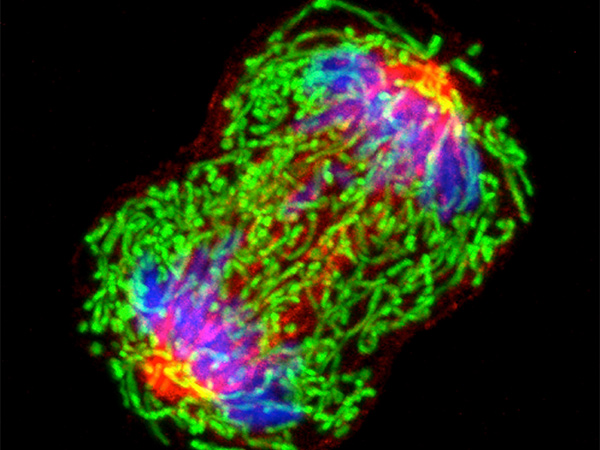First Targeted Therapeutic for BRCA-mutant Breast Cancer
The FDA has approved the molecularly targeted therapeutic olaparib for treating patients who have HER2-negative breast cancer and who inherited a BRCA1 or BRCA2 mutation.

The U.S. Food and Drug Administration (FDA) recently approved the molecularly targeted therapeutic olaparib (Lynparza) for treating certain patients who have breast cancer that tests positive for a cancer-associated BRCA1 or BRCA2 (BRCA1/2) mutation.
Olaparib is intended for patients who have metastatic HER2-negative breast cancer and who inherited the BRCA1/2 mutation. At the same time as approving olaparib for this use, the FDA also granted marketing authorization for a genetic test – the BRACAnalysis CDx test – to help identify patients who have inherited BRCA1/2 mutation-positive breast cancer and are eligible to receive the molecularly targeted therapeutic.
Before this approval, there were no molecularly targeted therapeutics approved for treating HER2-negative breast cancer with an inherited BRCA1/2 mutation. For those patients whose disease was also hormone receptor-positive, endocrine therapy was an option. However, chemotherapy was the only treatment option for those whose disease lacked the hormone receptor and was said to be triple negative.
About 5 to 10 percent of all breast cancers diagnosed in the United States are attributable to an inherited BRCA1/2 mutation, according to the National Cancer Institute. These mutations also account for about 15 percent of ovarian cancer cases.
Researchers have discovered that blocking the function of proteins called poly ADP-ribose polymerase (PARP) proteins can cause cells with cancer-associated BRCA1/2 mutations to die.
This discovery led to clinical trials testing PARP inhibitors as a treatment for patients with cancers harboring inherited BRCA1/2 mutations. The first group of these clinical trials to yield results that supported FDA approvals involved patients who had ovarian cancer. There are three PARP inhibitors approved for treating certain women who have ovarian cancer with an inherited BRCA1/2 mutation –
olaparib, rucaparib (Rubraca), and niraparib (Zejula). Rucaparib can also be used to treat ovarian cancer with a BRCA1/2 mutation acquired during the patient’s lifetime and niraparib can be used to treat both BRCA1/2 mutation?positive and –negative ovarian cancers.
The randomized phase III OlympiAD clinical trial is the first clinical trial testing a PARP inhibitor as a treatment for patients who had breast cancer harboring an inherited BRCA1/2 mutation to yield results that supported an FDA approval. Results from the trial, which were published last year in The New England Journal of Medicine, showed that the median progression-free survival was 2.8 months longer among the 205 patients who received olaparib compared with the 97 patients who received chemotherapy of their physician’s choice – capecitabine, eribulin, or vinorelbine. The results translated into a 42 percent lower risk of death or disease progression for those receiving olaparib.
Results from the OlympiAD clinical trial also provided the basis for the FDA to grant marketing authorization for the BRACAnalysis CDx test for use as an aid in identifying patients with breast cancer with inherited cancer-associated BRCA1/2 mutations who may be eligible for olaparib.
Other PARP inhibitors, including rucaparib, niraparib, and an investigational therapeutic called talazoparib, are being evaluated in clinical trials as potential treatments for patients who have breast cancer harboring an inherited BRCA1/2 mutation. If the results of these trials are as positive as those recorded for olaparib in the OlympiAD trial, it is likely that we will see additional molecularly targeted therapeutics approved for treating BRCA1/2 mutation-positive breast cancer soon.
The FDA approval was rendered on January 12, 2018.
